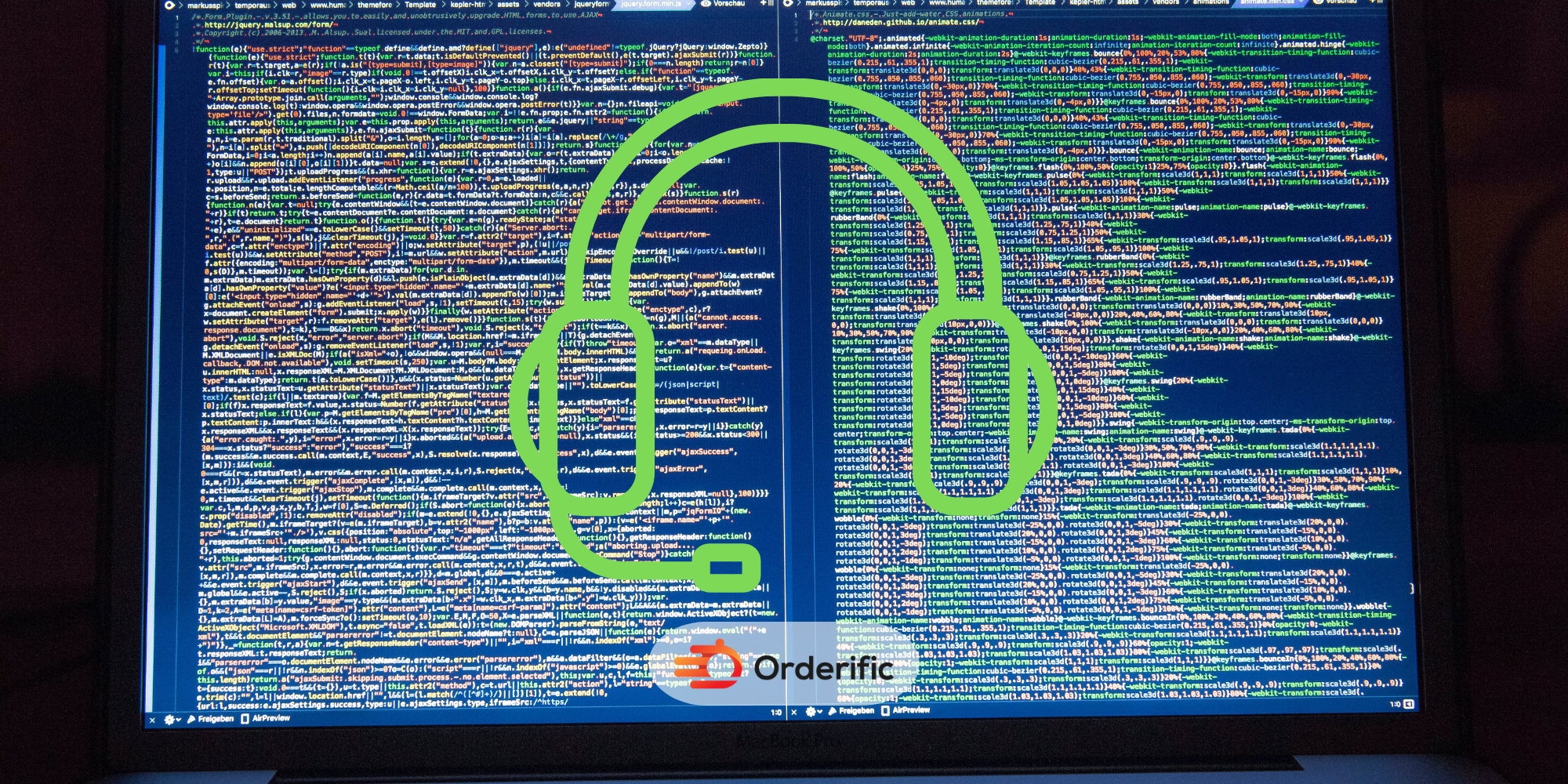Introduction
Event technology is rapidly evolving, presenting opportunities and challenges for event planners. The adoption of event tech can significantly enhance attendee engagement, transforming the entire attendee experience in virtual events. However, the path to integrating new technology solutions is often fraught with tech challenges. Event organizers strive to ensure seamless event management while navigating complexities and hurdles associated with implementing event tech. The goal is not just to host an event but to create an immersive, interactive experience for attendees, whether a hybrid or completely virtual one. Achieving this requires a thorough understanding of technology and a strategic approach to event planning. Despite the challenges, the potential rewards for elevated attendee engagement and enriched attendee experience make it an exciting time for event professionals in the event industry.
15 Most Common Event Planning Challenges & Their Solutions
1. Understaffing An Event Is A Common Event Problem
Understaffing is a prevalent issue in event management, often leading to reduced attendee engagement and a less-than-ideal attendee experience. Event planners must balance the team’s size with the scope of the event, ensuring enough personnel are available to manage various aspects of event technology. In virtual events, this can mean tech support for streaming services, managing event apps, and monitoring event registration. The role of technology in event organization is significant, with everything from virtual reality features in hybrid events to real-time attendee interaction requiring adequate staffing. Overcoming this challenge involves strategic event planning and understanding the crucial role of event technology solutions. Event professionals need to predict and prevent potential tech challenges, ensuring a smooth experience for all attendees. In the evolving event industry, understaffing is no longer just an event problem, but a tech challenge that needs comprehensive solutions.
2. Overspending On The Event Is A Big Event Challenge
Overspending is a significant event challenge, particularly when integrating new event technology. Event planners often face budget constraints, making it vital to carefully manage resources while still providing a rich attendee experience. The cost of event tech can be high, but with strategic planning, event professionals can appropriately utilize these tools to optimize attendee engagement in virtual events.
Event management involves balancing the benefits of advanced technology with the financial implications, as investing in an expensive event app or virtual reality features might not always yield desired results. It’s essential for event organizers to thoroughly assess the event technology solutions available, considering their potential impact on attendee engagement, the attendee experience, and the overall event.
Further, planners should anticipate potential tech challenges, providing for contingencies in their budgets. A key strategy is to drive attendee registration and engagement in hybrid events or virtual events using cost-effective, innovative tech solutions.
Also, event tech live support is a critical aspect to consider, as real-time troubleshooting can drastically enhance the quality of virtual events. The event industry is rapidly evolving with new technology; therefore, understanding these technologies and their cost implications is crucial for event professionals.
3. Not Prioritizing Networking Activities Is An Event Challenge
Overlooking the importance of networking opportunities is a common tech challenge in events. Event planners need to acknowledge the critical role of networking in enhancing attendee experience and engagement in both hybrid events and virtual events. The integration of event technology solutions heavily influences networking opportunities, transforming how attendees interact and engage with each other and the event content. An event app, for instance, can facilitate virtual networking, allowing attendees to connect, collaborate and share insights.
However, the application of event technology is not without its challenges. Implementing a seamless event tech live support, for instance, could be an obstacle that event organizers need to overcome to ensure a smooth attendee experience. Moreover, event professionals need to ensure that these networking opportunities are accessible and straightforward to use, promoting attendee engagement in the virtual event platform.
Effective event planning emphasizes the significance of networking in events, propelling technology use to create interactive environments. Event management teams should consider the value of virtual reality features in enhancing networking in a virtual event setting, creating immersive experiences that mimic face-to-face interactions.
In the evolving event industry, prioritizing networking activities is paramount. Event technology can bridge the gap between attendees, bringing them together in a shared virtual space, and fostering a sense of community and connection. Despite the tech challenges associated with implementing these technologies, the potential to boost attendee engagement and enrich the event experience makes it a worthwhile investment for event planners and organizers.
4. Forgetting To Track Schedule Or Budget Changes It An Avoidable Event Problem
Neglecting to monitor changes in budget or schedule is a common yet avoidable issue that event planners encounter when leveraging event technology. Effective event management necessitates staying on top of any changes, especially when integrating new event technology solutions. In the fast-paced world of virtual events, any shift in schedule or budget can significantly impact the attendee experience.
Event technology like comprehensive event apps can assist in tracking these alterations in real-time, ensuring that event organizers are always aware of the current status of their virtual event. This is especially vital in hybrid events, where the fusion of in-person and virtual realities poses new layers of tech challenges.
Moreover, event tech live support can be of significant help here. It can provide real-time solutions to any tech challenges that might occur, ensuring seamless attendee engagement. This emphasizes the need for event professionals to stay updated with the latest event technology, as it directly influences the success of the event.
Event management is a multi-faceted endeavor, and event planners must ensure a consistent check on the events’ schedule and budget changes. Despite the added complexity of managing technology, the potential benefits in terms of enriched attendee experience and elevated attendee engagement make the integration of event tech an essential aspect of modern event planning.
5. Not Having A Backup Plan For Bad Weather Is An Event Problem
Failing to have a contingency plan for inclement weather is a common pitfall in event planning. This issue becomes notably complex when it comes to hybrid events that combine both virtual and physical attendance. While the virtual part of the event might remain unaffected, the on-ground segment can suffer significantly due to bad weather conditions. Event technology can play a pivotal role in this scenario. Planners can leverage technology solutions such as real-time weather tracking apps or push notification systems in event apps to alert attendees and staff about weather changes. In the event of an unavoidable weather disruption, having a robust virtual event platform can help shift the entire event online, ensuring uninterrupted attendee engagement.
This requires a thorough understanding of the event technology at hand, as well as the ability to quickly adapt and respond to such last-minute changes. The key lies in effective event planning, which includes anticipating potential tech challenges and having contingency plans in place to ensure a seamless attendee experience, regardless of the weather.
6. Neglecting To Leave Wiggle Room In Your Event Timeline Is A Problem
Failing to allow for flexibility in your event timeline is a common oversight in event management. The integration of event technology requires buffer time to address potential tech challenges that may arise. Event tech, although instrumental in enhancing attendee engagement, can sometimes demand unexpected setup or troubleshooting time. A successful virtual event relies on meticulous planning that accommodates these uncertainties, ensuring a smooth and engaging attendee experience.
7. Lack Of Real World Work Experience Can Be An Event Challenge
The absence of practical work experience can pose a significant challenge in event planning, particularly when handling event technology. New technologies require an understanding that’s often honed through hands-on experience. This gap can result in tech challenges, potentially impacting attendee engagement and the overall experience at virtual events. Hence, gaining real-world experience and staying updated with the latest event tech trends is vital for successful event execution.
8. Having More Guests Or Attendees Than You Planned For Is An Event Mistake
The unexpected surge in attendee numbers can cause tech challenges, particularly in the realm of virtual events. Event technology must be robust enough to accommodate more participants without compromising the virtual event’s smooth running. This can impact event registration systems, streaming services, and the overall performance of the event platform. Therefore, event professionals should always plan for potential increases in attendee numbers to ensure an engaging and seamless experience for all.
9. Not Having A Structured Event Management Process Can Be A Challenge
Lack of a structured event management process can significantly impact the successful integration of event technology. A well-defined process ensures that all aspects of event tech, from setup to troubleshooting, are managed seamlessly, enhancing attendee engagement in virtual events. It provides a roadmap to navigate tech challenges, maintain budget control, and deliver a smooth attendee experience. Without this, event professionals risk overlooking crucial aspects of event tech, leading to potential disruptions and reduced attendee satisfaction. Therefore, establishing a structured event management process is an essential step in successful event planning.

10. Forgetting To Create An Attendee Engagement Plan For Before, During, And After The Event Is A Challenge
Neglecting to develop an attendee engagement plan for all event stages is a common oversight in event planning. This plan is crucial in optimizing attendee interaction through event technology, ensuring a seamless and immersive experience. It includes strategies for fostering engagement before the event, maintaining it during the virtual event, and continuing it post-event. A comprehensive engagement plan mitigates tech challenges, promotes effective use of event technology, and drives overall attendee satisfaction.
11. Leaving Little To No Time For Event Set Up Or Take Down Is An Event Mistake
Leaving insufficient time for event setup or dismantling is a common mistake in event management. The integration of event technology requires adequate setup time to ensure smooth operations and attendee engagement. Similarly, take down should be planned for, to facilitate a cohesive wrap-up without causing undue delays. Any tech issues should be addressed promptly to maintain the flow of the event. Hence, meticulous planning and time management are crucial in successfully hosting a virtual event.
12. Neglecting To Research What Other Local Events Or Laws Might Affect Your Gathering Is A Problem
Failing to research local events or laws that might interfere with your event represents a common issue that event organizers often overlook. This can be particularly crucial for hybrid events which have a physical component. Event technology solutions, like location-aware apps or real-time notifications, can aid in proactively identifying conflicting events or legal restrictions. This foresight helps event professionals in navigating these challenges and ensuring smooth, uninterrupted attendee engagement.
13. Failing To Capture Valuable Event Data Can Be An Event Mishap
Overlooking the collection of valuable event data represents a significant miss in event planning. Event technology provides numerous opportunities to gather insightful data that can improve future events, enhance attendee engagement, and optimize event strategies. Ignoring this data collection can result in missed opportunities to refine the event experience. Hence, event professionals should prioritize leveraging technology for data capture in their event management practices.
14. Over-Programming Your Event Schedule Is A Problem
Overloading your event schedule can negatively impact attendee engagement. While it’s essential to provide valuable content, an overly packed agenda can overwhelm attendees, particularly in a virtual event setting. Event technology can assist in managing the schedule effectively, but it’s crucial to strike a balance, allotting enough time for interactive sessions and breaks. A well-paced event optimizes attendee engagement and fosters a positive event experience.
15. Not Confirming Your Vendors Can Be An Event Mistake
Not confirming your vendors can result in severe tech challenges during the event. Vendor confirmations are crucial to ensure that the required event technology is in place and functioning correctly. This includes everything from sound and lighting equipment to virtual event platforms and apps, all critical for enhancing attendee engagement. Without confirmation, organizers risk encountering last-minute issues that could disrupt the event and potentially deter attendees. Therefore, confirming vendors well in advance is an essential aspect of successful event planning.
Conclusion
In summary, navigating the landscape of event technology is filled with complexities that can sometimes pose significant challenges. Whether it’s ensuring seamless attendee engagement, managing event budgets and schedules. Adapting to unexpected weather changes, gaining necessary hands-on experience. Or dealing with an unexpected surge in participant numbers, event professionals need to be prepared and proactive. The key is to have a structured event management process and an effective engagement plan in place. Despite the challenges, the potential of event technology to revolutionize the attendee experience and foster a sense of community in virtual spaces makes it an invaluable asset for modern event planning. Should you need assistance in implementing innovative event technology solutions and overcoming these tech challenges, don’t hesitate to reach out to Orderific. We invite you to schedule a demo with us and learn more about how our solutions can enhance your event planning process.
FAQs
What are common tech challenges faced by event organizers in the current landscape?
Common tech challenges include managing event technology, enhancing attendee engagement. And dealing with unexpected issues like weather changes or increased attendee numbers.
How can event professionals proactively address and overcome tech challenges during an event?
Event professionals can overcome tech challenges by staying updated with the latest event technology. Planning meticulously, and having contingency plans in place.
Are there specific types of events that typically encounter more tech challenges than others?
Hybrid and virtual events tend to encounter more tech challenges due to their reliance on technology for successful execution.
What role does contingency planning play in mitigating potential tech challenges during events?
Contingency planning plays a crucial role in ensuring uninterrupted attendee engagement by providing alternatives in case of unexpected tech issues.
How can staying updated on the latest technology trends help in managing and overcoming tech challenges?
Staying updated allows event professionals to leverage the latest technology solutions. Anticipate potential issues, and implement effective strategies to mitigate tech challenges.













